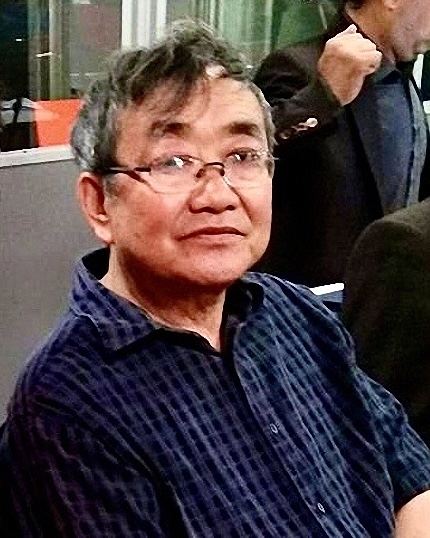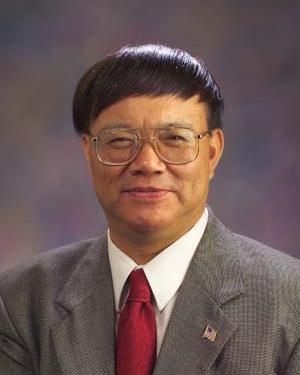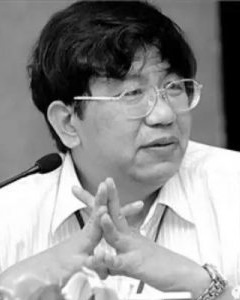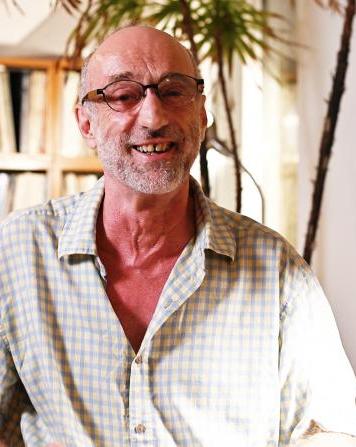
Robin Munro
Robin Munro (1 June 1952 – 19 May 2021) was a British legal scholar, author, human rights advocate, and witness of the 1989 democracy movement in China. Munro enrolled in Chinese Studies at the University of Edinburgh and left for China in 1977, as among the first foreign students allowed to study in the country after the reopening of universities following the Cultural Revolution. Upon returning to London in 1979, he joined Amnesty International as their China researcher. In 1987, Munro moved to New York to join Human Rights Watch, and from 1989 to 1998, he served as the principal China researcher and Director of HRW’s Hong Kong office, during which he witnessed first-hand the Tiananmen Square protests.
Munro returned to London in 1999 to pursue a doctoral degree at SOAS University of London, where he continued to research psychiatric abuse in China, and earned his PhD in 2005. In 2003, Munro returned to Hong Kong and joined as the Research Director of the China Labour Bulletin, founded by Han Dongfang, one of the Tiananmen leaders Munro helped escape. Munro retired in 2011, moving to Taiwan after being diagnosed with cancer and died of complications from illness on 19 May 2021.
Munro wrote extensively about the human rights situation in China and co-authored Black Hands of Beijing: Lives of Defiance in China’s Democracy Movement, which traced the lives of three leading Tiananmen activists to explain the genesis of pro-democracy movements.
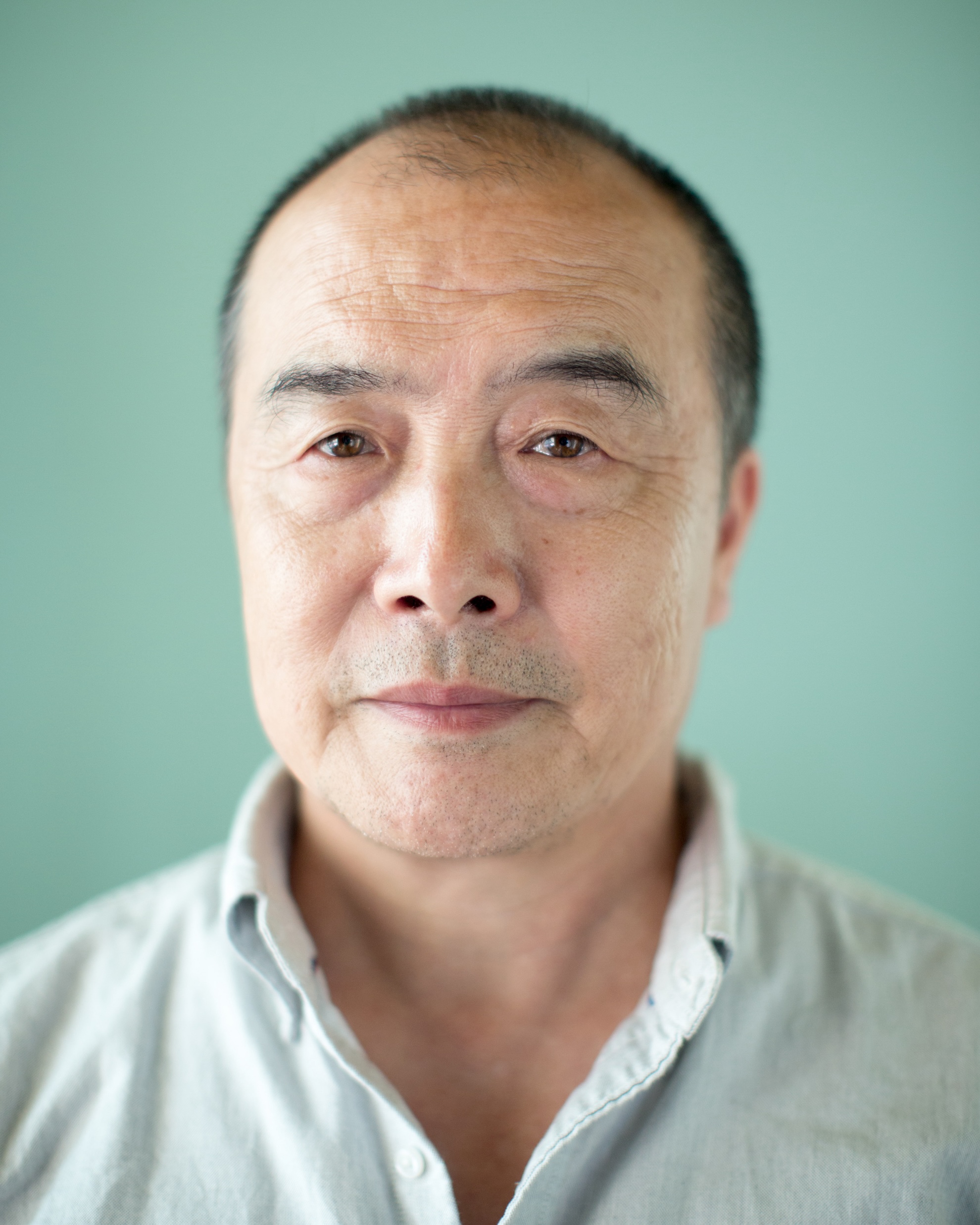
Wang Lixiong
Wang Lixiong (May 2, 1953-), writer. Born in Changchun, Jilin Province, Wang's mother was a screenwriter at the Changchun Film Studio, and his father was the deputy director of the Changchun First Automobile factory before the Cultural Revolution, a superior of Jiang Zemin, who served as president of China from 1993 to 2003. During the Cultural Revolution, Wang's father was labeled a capitalist and a Soviet agent and died in detention.
In 1973, as a Worker-Peasant-Soldier student, Wang went to study at the Jilin University of Technology, and after graduation, he was assigned to work at the Changchun First Automobile factory. In 1980, Wang left to work with a film crew and began writing novels and screenplays. In 1994, he also participated in the founding of Friends of Nature, the first non-government environmental organization in mainland China.
Wang has written and published many books on Chinese politics, including political allegories <i>Yellow Peril</i> and <i>Reincarnation</i>, non-fiction, such as <i>Sky Burial: The Fate of Tibet</i> and <i>My West China, Your East Turkestan</i> on Xinjiang, as well as books on China’s political system <i>Dissolving Power: A Successive Multi-Level Electoral System</i> and <i>Bottom-up Democracy</i>.
Because of his research, writing, and advocacy activities, Wang was arrested in 1999 on suspicion of leaking state secrets and released after 42 days, and was removed from the Friends of Nature as a board member in 2003 due to government pressure.
Wang is married to the Tibetan writer Tsering Woeser.
During the COVID-19 lockdown in 2022, Wang lived in Shanghai.
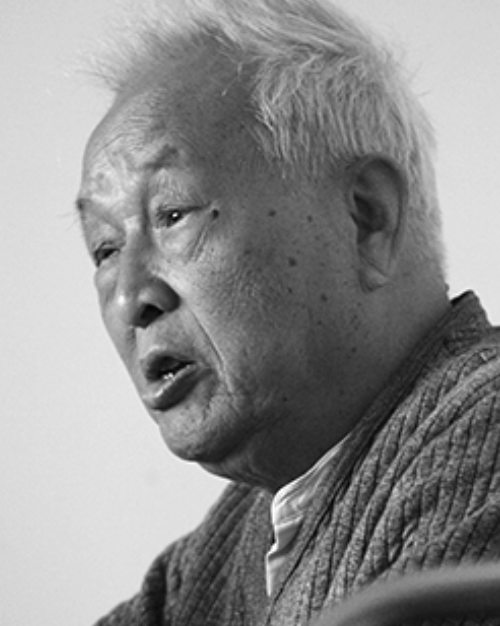
Dai Huang
Dai Huang (February 1928 - February 19, 2016), a native of Funing, Jiangsu Province, was a writer and journalist. In 1944, Dai Huang joined the New Fourth Army, a unit of the National Revolutionary Army of the Republic of China which was controlled by the Chinese Communist Party, and was assigned to the Xinhua News Agency as a reporter in 1947. In 1957, he was labeled a Rightist for opposing CCP’s privileges, and was exiled to northeastern China for re-education through labor. He was rehabilitated and returned to Xinhua News Agency in 1978 and passed away in 2006 due to illness. Dai Huang wrote several books including *Hu Yaobang and the Vindication of Wrongful Convictions* (held by the CUA), and *Narrow Escape: My Journey as a Rightist*.
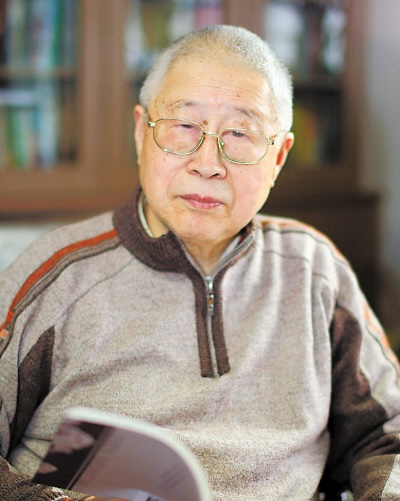
Zhu Zheng
Zhu Zheng (1931- ), a native of Changsha, Hunan Province, is a publisher and writer under the pen names Mo Guai (莫怪), and Chen Pu (陈朴). Inspired by Lu Xun’s writings when he was in middle school, Zhu decided to follow the Chinese Communist Party. In 1949, Zhu was admitted to the cadre journalism class of the <i>New Hunan Newspaper</i>, the earliest news organization set up by CCP in Hunan since the founding of the PRC, and then worked for the newspaper before being transferred to Hunan People's Broadcasting Station in 1950. In 1952, because of his leading role in reporting and criticizing the leadership of the radio station, Zhu was accused of leading an anti-Party group, expelled from the Communist Youth League, and transferred back to the New Hunan Newspaper to work under supervision. In 1955, Zhu became a target of Mao’s purge of counter-revolutionaries; and in 1957, because of his comments about the purge and Stalin, he was labeled a Rightist, dismissed from public service, and exiled for re-education through labor. After being released in 1962, he was again labeled a counter-revolutionary and sentenced to three years' imprisonment in 1970. After being rehabilitated in 1979, Zhu worked as an editor at the Hunan People's Publishing House until his retirement, and joined the Chinese Writers' Association in 1985.
As a scholar and writer specializing in contemporary Chinese history, Zhu has written about a dozen books, one of the most popular of which is <i>Summer of 1957: From One Hundred Schools of Thought to Two Schools of Thought</i> (held in our Archive), a panoramic description of the Anti-Rightist Campaign. Zhu is also an expert on Lu Xun, and wrote many books about Lu Xun, such as <i>The Biography of Lu Xun</i>, <i>Lu Xun’s Interpersonal Relationship</i>, and <i>Re-reading Lu Xun</i>.
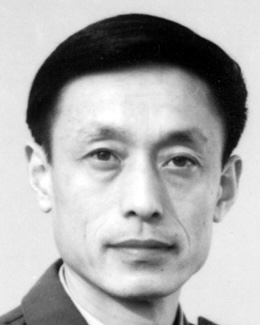
Jin Hui
Jin Hui (1954-), a native of Tangshan, Hebei Province, is a writer. Jin graduated from the Department of Literature of the People's Liberation Army Academy of Art in 1986. Since 1970, he has successively worked as a coal miner in Kailuan, a soldier and a reporter in a military region, and a professional writer in the Literary and Artistic Creation Office of the Political Department of the Beijing Military Region.
He began to publish in 1975 and joined the Chinese Writers' Association in 1991. Jin wrote and published an article entitled "Memorandum on Three Years of Natural Disasters" in Shanghai's <i>Society</i> magazine, speculating that the number of unnatural deaths during China's 1959-1961 famine was about 40.6 million.
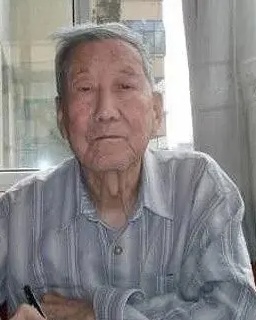
Li Jinghang
Li Jinghang (August 1922 – September 28, 2016), a native of Tianshui, Gansu Province and Christian, graduated from the Mathematics Department of the Northwest Normal College in 1949.
In the fall of the same year, he was employed as a mathematics teacher at Tianshui No. 1 Middle School, and was converted to Christianity in 1950. In 1957, he was labeled a Rightist for his unwillingness to voice his opinions about the CCP and for being a Christian, and was exiled to Jiuquan, Gansu Province to work in a labor camp in Jiabiangou. In 1960, he was transferred to another labor camp in Gaotai county, where the conditions were even worse, and almost died there.
In 1961, he was released and resumed his work as a teacher at Tianshui No. 1 Middle School. In 1962, his label as a Rightist was lifted and he was rehabilitated in 1979. In 1980, he was transferred to Tianshui Teachers College (which was upgraded to an undergraduate institution in 2000) as a lecturer in the mathematics department. After retiring in the fall of 1987, he joined the church to serve full-time.
During his time at the church, Li wrote <i>The Journey of Grace</i>, documenting his personal life and his journey of faith.

Song Bailin
Song Bolin was born into a party cadre family–his father was a high-ranking official in the People's Liberation Army. Song attended Tsinghua University High School during the Cultural Revolution and was a core member of the school’s Red Guards group.
In August 1966, when Mao Zedong met with the Red Guards on Tiananmen Square, Song was one of the first students to meet Mao. Song kept a diary covering the period before and at the beginning of the Cultural Revolution. His diary, especially the part about the Red Guards at Tsinghua University High School was considered to be of great historical value, and Yu Ruxin, a Cultural Revolution researcher, compiled Song’s diary into a book entitled <i>Rise and Fall of the Red Guards: A Handbook of the Old Red Guards at Tsinghua High School</i>.
Xu Youyu
Xu Youyu (1947-) is a philosopher and writer. Born in Chengdu, Sichuan Province, Xu was in his high school graduating class when the Cultural Revolution broke out in 1966. He joined one of the most influential student rebel organizations in Chengdu at that time, later became one of its key members. After the Cultural Revolution, Xu was admitted to the Mathematics Department of Sichuan Normal University in 1977. In 1979, he was admitted to the Graduate School of the Chinese Academy of Social Sciences (CASS), where he received his master's degree and worked as a researcher at the Institute of Philosophy of the CASS until his retirement in 2008, during which time he visited and taught at the University of Oxford, Harvard University , the Academia Sinica in Taiwan, Chinese University of Hong Kong, Stockholm University, the School of Advanced Studies in Social Sciences in France, and Hokkaido University.
Xu Youyu's initial field of study was the philosophy of language, but after the June 4 uprising in 1989 he switched to contemporary Western political philosophy, contemporary Chinese social thought, and the Cultural Revolution. He began publishing a number of books on these topics.
Xu Youyu drafted and, along with other scholars, submitted a petition to the central government calling for the release of democracy activist Wei Jingsheng in 1988, participated in the June 4 protests in 1989, and signed Charter 08 in 2008. In June 2010, Xu participated in the release of the open letter “The Citizens’ Pledge”, and was one of the founders of what would later become the New Citizens Movement. In May 2014, Xu was detained for his participation in a conference about the June 4 uprising, released on June 5 the same year. In 2014, Xu was awarded the Swedish Olof Palme Prize for his commitment to democracy and freedom of speech. In 2015, Xu moved to the United States, where he is currently a scholar-in-residence at the New School in New York.

Yan Jiaqi
Yan Jiaqi (严家祺), (1942-), is a prominent Chinese intellectual, former political reformist, and a key figure in the 1989 Tiananmen Square protests. He is also known as a Christian pastor and a prolific author. Yan's career has spanned academia, political activism, and religious leadership, with a central focus on advocating for political reform, human rights, and democratic change in China.
Born in Heilongjiang Province, Yan studied at the China University of Science and Technology before moving on to the Chinese Academy of Sciences, where he became an expert in political science. During the 1989 Tiananmen protests, Yan was a leading figure. As the Director of the Political Science Institute at the Chinese Academy of Social Sciences, he was deeply involved in the intellectual movement that called for political change and democracy. In the months leading up to the June 4th crackdown, Yan participated in several major events, such as a symposium organized by World Economic Herald and New Observer magazine, where he publicly expressed his support for the student protests, believing they represented the future of China.
Yan's activism culminated in May 1989, when he helped mobilize intellectuals and students in support of the hunger strike and subsequent demonstrations. On the night of May 13, Yan, along with other scholars, posted a prominent slogan on the campus of Peking University: "We Can No Longer Remain Silent", calling on intellectuals to join the protest. On May 14, he co-signed a public declaration demanding the recognition of the protests as a patriotic and democratic movement. As a prominent voice during the protest, Yan helped form the Capital Intellectuals' Alliance, which issued multiple key declarations, such as the May 16 Declaration and May 17 Manifesto, that garnered support from numerous intellectuals across the country.
After the brutal crackdown, Yan was placed on the most-wanted list by the Chinese government and, with the help of the<a href="https://minjian-danganguan.org/s/china-unofficial/item/549#lg=1&slide=0"> "Yellow Sparrow Movement,"</a> fled to Hong Kong. From there, he sought asylum in France, where he became the first chairman of the Democratic China Front. In 1994, he moved to New York and became a visiting scholar at Columbia University.
Yan has written extensively on Chinese politics, democracy, and human rights. His works include The Evolutionary Theory, History and Future: A Study on Authoritarianism, Constitutionalism, and Republicanism, and The Ten Years of the Cultural Revolution (co-authored with his wife, Gao Gao). He also published The Global Wealth Theory in 2020, which introduces the concept of a global currency system.
More recently, Yan has remained a staunch advocate for revealing the truth behind the Tiananmen Square massacre. In a 2019 interview, he expressed hope that his former colleague, Wang Huning, who had played a significant role in Chinese political circles, would help restore the truth about the June 4th incident. Yan noted, "I hope he can contribute to restoring the truth about Tiananmen. June 4th was not a riot but a crime committed by the Communist Party against the people."
Yan Jiaqi’s life and work have remained focused on advocating for political change in China, promoting human rights, and calling for the restoration of historical truths that have long been suppressed. His belief in the power of truth and justice resonates in his statement: "People do not live merely to survive; they live with dignity, hope, and joy. The very least that life should offer is hope."
Today, Yan lives in Florida with his wife Gao Gao.
